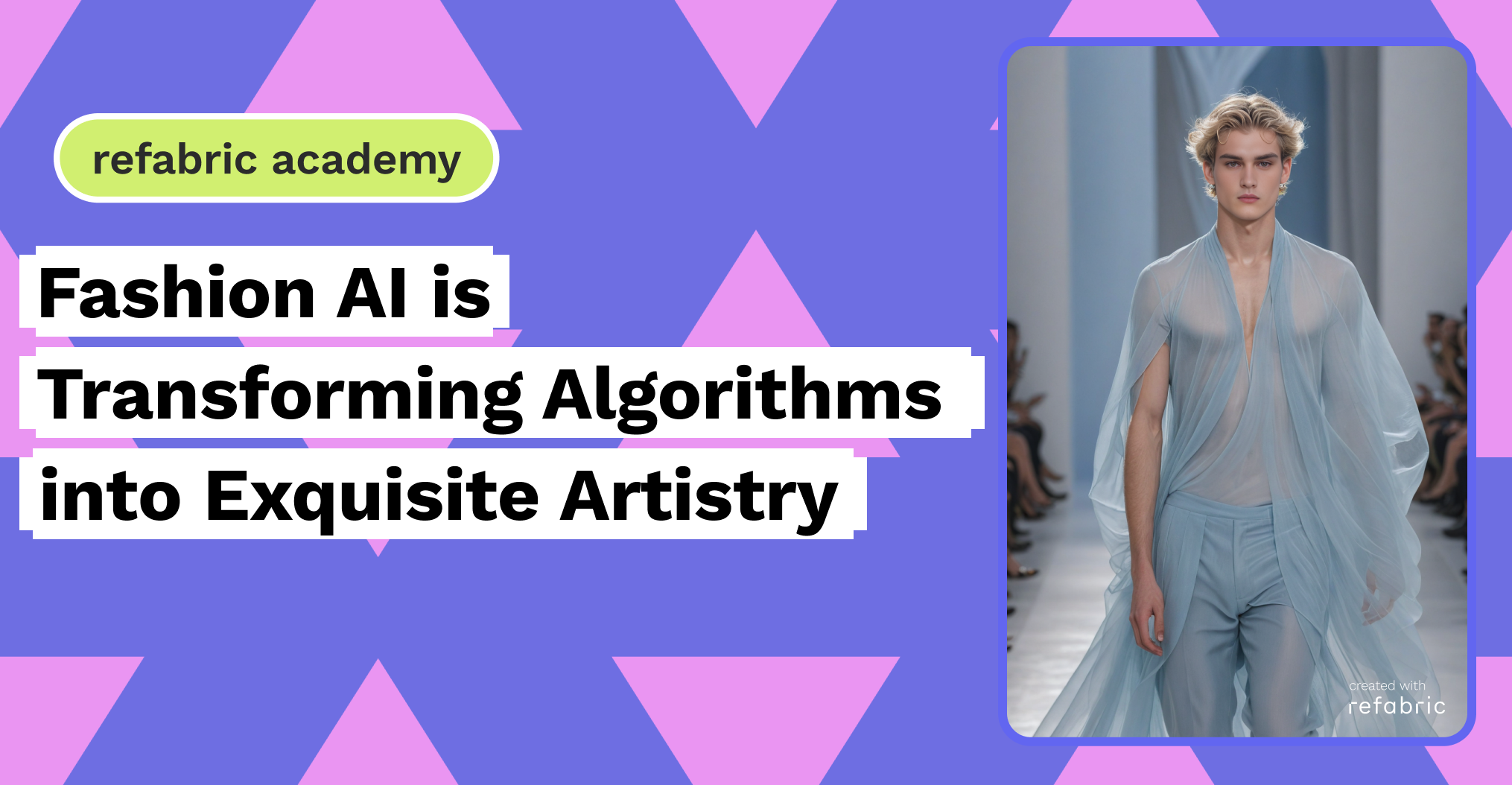Fashion AI is at the forefront of innovation in the ever-evolving world of fashion. From the invention of the sewing machine to the rise of fast fashion, each era has brought new ways to create and consume clothing. Today, the latest revolution is being driven by technology, particularly artificial intelligence (AI). Fashion AI is rapidly becoming a buzzword in the industry, promising to transform how designers conceptualize, create, and market their collections.
Fashion AI refers to the application of artificial intelligence technologies in the fashion industry. This encompasses a wide range of tools and techniques, from machine learning algorithms that predict trends to computer vision
systems that analyze consumer preferences. The integration of AI into fashion is not just a fleeting trend; it’s a powerful shift that is poised to redefine the entire design process.
Enhancing Creativity with Fashion AI
One of the most significant impacts of fashion AI is its ability to enhance creativity. Traditionally, fashion design has been a labor-intensive process, relying heavily on the designer’s intuition and experience. However, AI can augment this process by providing data-driven insights. For example, AI algorithms can analyze vast amounts of fashion data from social media, e-commerce platforms, and fashion shows to identify emerging trends and predict future styles.
Designers can leverage these insights to create collections that are not only innovative but also aligned with consumer preferences. This fusion of human creativity and machine intelligence leads to designs that are both cutting-edge and commercially viable. Moreover, AI-powered tools can assist in creating new patterns, suggesting color palettes, and even generating entirely new garment designs, providing designers with a rich source of inspiration.
Efficiency and Sustainability in Production
Fashion AI also brings significant efficiency improvements to the production process. AI can optimize supply chain management by predicting demand more accurately, reducing overproduction, and minimizing waste. This is particularly crucial in an industry often criticized for its environmental impact. By producing only what is needed, brands can adopt more sustainable practices, reducing their carbon footprint and conserving resources.
Additionally, AI-driven automation in manufacturing can streamline production lines, enhance quality control, and reduce costs. Automated cutting machines, for instance, can cut fabric with precision, reducing material wastage. Quality control systems powered by computer vision can detect defects in fabrics and garments far more accurately than the human eye.
Personalized Shopping Experiences
Beyond design and production, fashion AI is revolutionizing the shopping experience. Personalization has become a key differentiator in the competitive fashion market, and AI plays a pivotal role in this area. By analyzing individual customer data, AI can create personalized recommendations, helping consumers find clothing that matches their style preferences and fit requirements.
Virtual fitting rooms, powered by AI, allow customers to try on clothes virtually, enhancing their online shopping experience and reducing the likelihood of returns. Chatbots and virtual stylists provide personalized styling advice, making shopping more interactive and engaging. These advancements not only improve customer satisfaction but also increase sales and brand loyalty.
Challenges and Future Prospects
While the potential of fashion AI is immense, it is not without challenges. Data privacy concerns are paramount, as the use of personal data to drive AI algorithms raises significant ethical questions. Additionally, there is a fear that the rise of AI could lead to job displacement in an industry that employs millions worldwide.
However, many industry experts believe that rather than replacing human workers, AI will serve as a valuable tool that complements and enhances human capabilities. As AI continues to evolve, it will likely create new roles and opportunities within the fashion industry.
Looking ahead, the future of fashion AI is incredibly promising. As technology advances, we can expect even more sophisticated AI applications that further blur the lines between creativity and technology. From smart textiles that change color based on the environment to AI-generated fashion shows, the possibilities are endless.
“Fashion AI” is not just a trend; it’s a transformative force that is reshaping the fashion industry from algorithms to aesthetics. By enhancing creativity, improving efficiency, and personalizing the shopping experience, AI is driving a new era of innovation in fashion design. As the industry continues to embrace these technological advancements, the future of fashion looks more exciting and dynamic than ever before.
